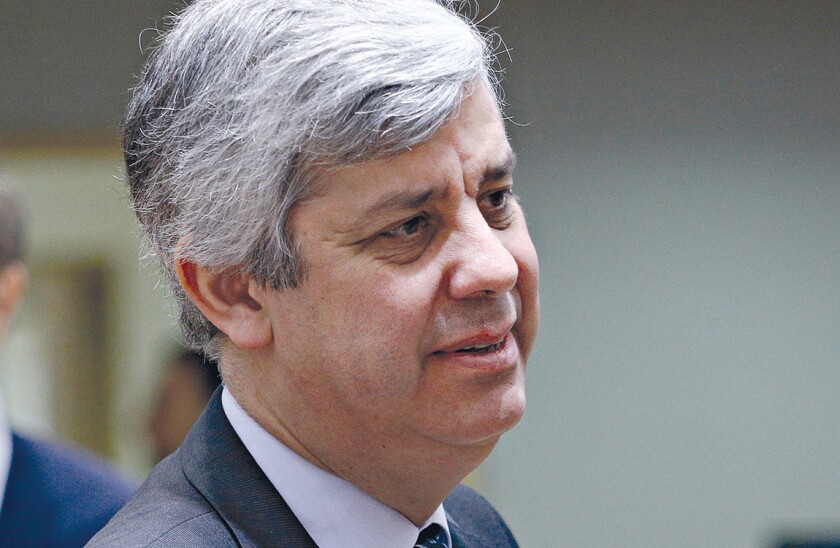As speculation mounts that the European Central Bank may unleash new weapons to fight inflation, Italy and Portugal’s central bank governors have warned against using tools other than the interest rate.
Analysts believe the ECB is not satisfied that its interest rate rises have contained inflation and is considering going further. One possibility would be to raise the minimum reserve requirement on banks from 1% of their deposits and short term funding to 3%, 4% or even more.
Another would be to start selling some of the €5tr of bonds it amassed during quantitative easing. The effects would be to push up yield curves and drain liquidity from banks.
In one of his last interviews as Bank of Italy governor before he hands over to Fabio Panetta, Ignazio Visco argued this would be futile or even counter-productive. “I think we are very well placed in using our now conventional monetary policy,” he told GlobalMarkets.
“Some are questioning the balance sheets of central banks,” he said. “Others may think that if you raise the percentages on reserve requirements or reduce the rates on them, you can achieve something. That’s not my experience. If we have to reduce the balance sheet, it’s not because we are shifting to a new framework but because perhaps we have an excess of assets, which we don’t need to have.”
He added: “If we start selling [bonds] very much, the slope of the yield curve may increase to a level where we don’t want it to be, with effects on the economy.”
Another potential unintended consequence of quantitative tightening is government bonds flowing back to banks in their own countries, something held to have exacerbated the eurozone sovereign debt crisis.
Asked about fears of a renascent sovereign-bank doom loop, Visco said smaller Italian banks were naturally inclined to switch from small and medium sized enterprise lending to buying more government bonds if the economy was in trouble. “So far, this has not created a problem,” he said. “It might create a lot of problems if you intervened in a sharp way and, therefore, I would suggest a gradual approach.”
In a separate interview, Bank of Portugal governor Mário Centeno said: “We are very happy with the transmission mechanism [of interest rates], and we don’t need to increase the passthrough of monetary policy. I don’t see a reason to discuss the minimum reserve requirement right now.”
Both governors warned against the danger of pushing too hard against inflation, including through interest rates.
“My impression is that where we are is where we should stay,” said Visco. “Let’s observe the effects that monetary policy is having on the real economy: credit has been falling in the last few months. Money supply dynamics is substantially negative. Interest rates are up. Loan rates are up. Demand for credit is falling, which has a counterpart in the real economy. There is no wage-price spiral. My impression is that much of the effects of monetary policy are still in the making.”
Centeno said “doing too much” would be inconsistent with the ECB’s mandate of both financial and price stability.
“The stabilisation mandate of the ECB needs to be taken very seriously,” he said. “Doing too much on the monetary policy front now will threaten all the success we have had, especially in the labour market. We need to work to preserve the labour market conditions that we have today, which are a pillar of the success of the European economy. We should not threaten that situation, by no means.”
Centeno said it was natural for monetary policy’s effects to lag rate rises because fixed rate borrowing was prevalent in parts of the euro area. “We revised upwards our estimates of monetary policy transmission in September,” he said. “We were surprised by how strongly it had happened already, but there will be more to come.”
Visco agreed: “Monetary policy operates with lags which are variable and long,” he said. “If there are no further shocks, expectations are anchored. We will reach 2% inflation in the medium term, by the second half of 2025. The risk is doing too much. The risk is that the economy reacts more, and this has consequences on the financial side and on the overall price levels. We have to be data-dependent. This is clear.”
